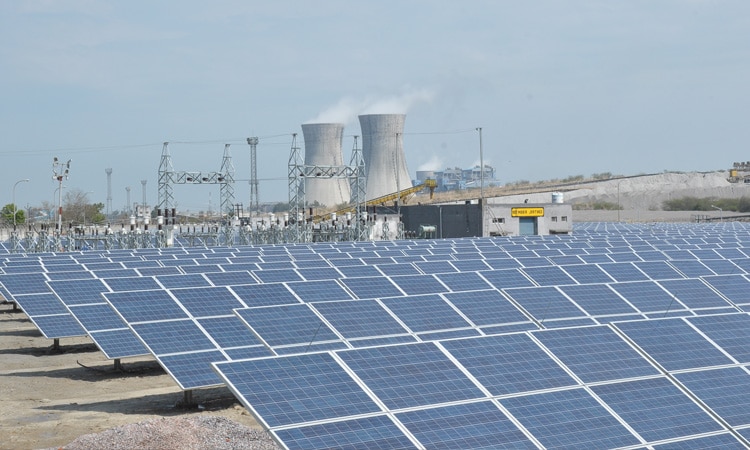From pv magazine India
The Central Electricity Authority, a division under India's power ministry, has conducted a study to determine the optimal generation capacity mix for India in 2029-30. It found that a generation capacity of 777 GW, with renewables accounting for 62.4% (485 GW), supported by 41.65 GW/208.25 GWh of battery energy storage systems, is the most cost-effective and operationally feasible solution to meet the country's electricity demand.
The renewables mix includes 53.9 GW of large hydro, 18.9 GW of pumped storage, 292.6 GW of solar PV, 99.9 GW of wind, 14.5 GW of biomass, and 5.3 GW from small hydro plants. The remaining capacity consists of 251.6 GW of coal- and lignite-based capacity, 24.8 GW of gas-based capacity, and 15.48 GW of nuclear-based capacity.
The study used a state-of-the-art computer Generation Expansion planning model, which considered the projected regional peak electricity demand and electrical energy requirement for 2029-30. It took into account various technical and financial parameters associated with different power generation and storage technologies to determine the optimal mix.
According to the study, the share of thermal installed capacity is expected to decrease to 35.5% of the total installed capacity in 2029-30, compared to 57% as of March 2023. On the other hand, the share of renewable energy-based installed capacity, including large hydro, is projected to increase to 62.4% in 2029-30, compared to 41.4% in March 2023. The overall non-fossil capacity, including nuclear, is estimated to reach about 64% (500.6 GW) of the total installed capacity in 2029-30.
As of March 2023, India's installed capacity stood at 415.4 GW, comprising 236.68 GW from thermal sources (211.8 GW coal + lignite and 24.8 GW gas), 6.78 GW from nuclear, and 171.8 GW from renewable energy sources (42.1 GW hydro, 66.8 GW solar, 42.6 GW wind, 4.7 GW small hydro, 4.8 GW pumped storage, 10.8 GW bio-power).
This content is protected by copyright and may not be reused. If you want to cooperate with us and would like to reuse some of our content, please contact: editors@pv-magazine.com.




By submitting this form you agree to pv magazine using your data for the purposes of publishing your comment.
Your personal data will only be disclosed or otherwise transmitted to third parties for the purposes of spam filtering or if this is necessary for technical maintenance of the website. Any other transfer to third parties will not take place unless this is justified on the basis of applicable data protection regulations or if pv magazine is legally obliged to do so.
You may revoke this consent at any time with effect for the future, in which case your personal data will be deleted immediately. Otherwise, your data will be deleted if pv magazine has processed your request or the purpose of data storage is fulfilled.
Further information on data privacy can be found in our Data Protection Policy.